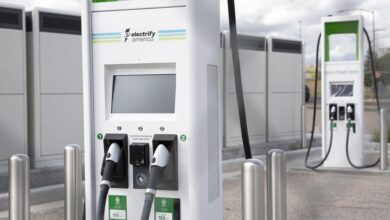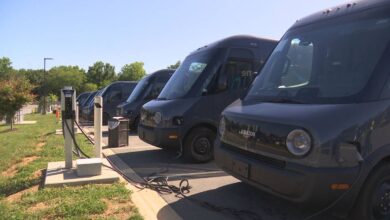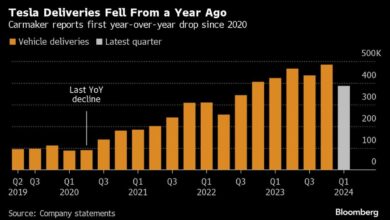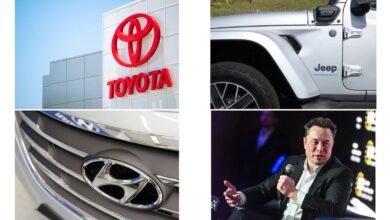Less than a third of Americans ‘likely’ to get an electric vehicle in the future as industry hit with charging setbacks
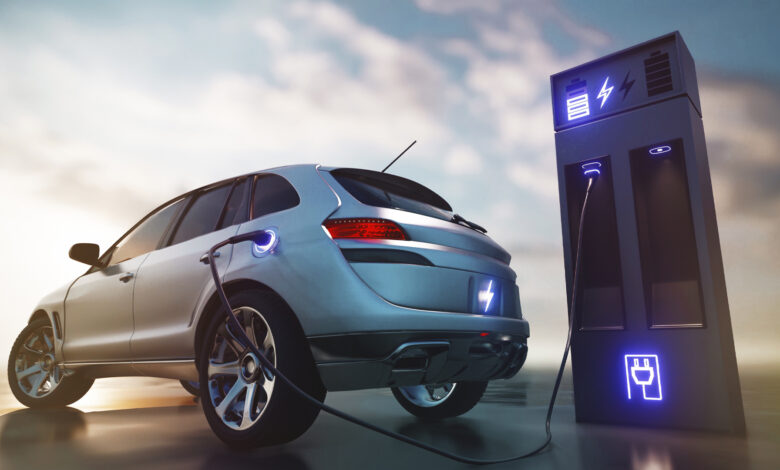
DRIVERS answered a recent survey asking if they’d transition from a gas-powered car to an EV – only a third responded positively.
Additionally, men answered they’re more likely to buy an EV over women drivers.
It’s no longer a secret that a lack of infrastructure and ownership costs are keeping potential buyers away from an all-electric vehicle.
Aside from the continued issue of unreliable public chargers, drivers expressed hesitance stemming from higher sticker prices compared to gas-powered cars.
Even with a federal incentive, EVs are still more expensive – especially since the incentive doesn’t immediately apply to the sticker price for many buyers.
In addition, some insurance companies may charge more for an EV due to the high costs of replacing a battery if it’s ever damaged.
EVs are also much heavier than gas-powered cars, resulting in faster tire wear and more frequent replacements.
Many states, like Texas and California, impose higher registration fees to EV owners every year to make up for the lack of revenue made from gas taxes too, which sway drivers toward gas or hybrid vehicles, said MarketPlace.
Several EV makers are trying to attract new buyers by slashing the prices of the vehicles or offering their own incentives to customers, though it may not be sustainable for these companies.
Gil Tal, the director of the EV Research Center at the University of California, Davis said every sale is costing companies thousands per car.
“Right now on every electric car they’re selling, they are losing, if they just divide the total investment by the number of cars,” he told the outlet.
In the face of charging issues and costs, many drivers are turning to hybrids to help ease the burden of high gas prices.
To get real-life answers from drivers, The U.S. Sun acquired a poll asking drivers their thoughts on converting to an electric vehicle, and how likely they were to do so.
What we were able to gather was this: overall, only a third of respondents said they’d be interested in buying an EV in the future (31%).
Men seemed to be more receptive to the prospect of plugging in (39%) compared to women drivers (27%).
According to a similar survey from Inside Climate News, women tended to be wary of EVs due to the long waiting times at public charging stations.
Women feared for their safety while charging a vehicle, especially since many drivers still have to travel some distance to charge unless they live in a major city.
Gas stations usually have an attendant close by in a convenience store, while many charging stations are in remote areas without an attendant.
Edmunds recently published data showing that 67 percent of all EV purchases in 2023 were by men, while only 33 percent were by women.
Their survey showed women were less enthusiastic about EVs, too.
Why aren’t people buying EVs?
As January, many EV makers reported slow demand. Rueters said there are a few valid reasons for a slow in demand:
- High initial costs. Many automakers, like Tesla, Hyundai, and Ford have conducted “price slashes” on their flagship EVs to attract new buyers, though demand remains slow.
- Higher insurance costs. Some insurance companies cite fire risks, high costs of battery replacement, and higher vehicle weight as reasons for higher premiums.
- Charging anxiety. A large percentage of people remain fearful of being in a situation where they won’t be able to charge if they run out of battery due to a lack of infrastructure.
- Range anxiety. In many instances, EVs still don’t have the range and infrastructure of gas-powered vehicles.
- Poor performance in extreme temperatures. Reduced range in extremely hot or cold weather makes potential buyers wary.
Source: Reuters
According to their findings, men responded positively (71%) saying they’d consider an EV over gas for their next vehicle, while women remained cautious (34%).
Additionally, men said they were more interested in EV technology (54%), while women were less interested (22%).
A surprising amount of female respondents (24%) responded saying they didn’t know enough about EVs to answer the question.
Also worth noting was the fact that men found a brand name to be more important (42%) than women (22%), and the price was more important to women than men.
However, women were more interested in buying a hybrid (24%) than men (10%).
